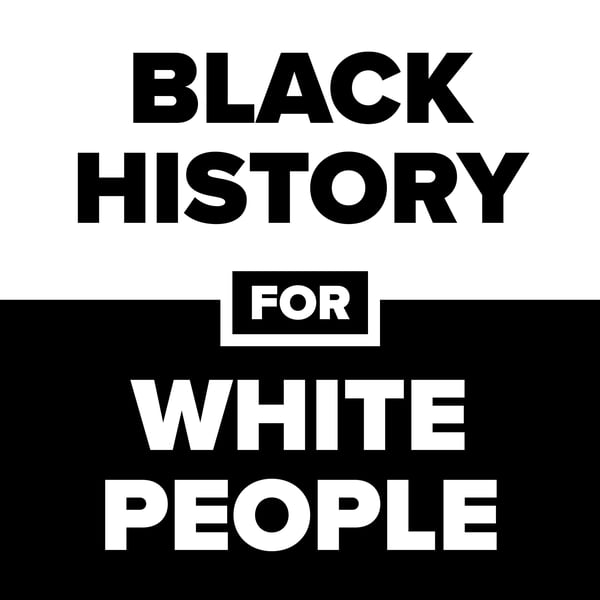The Tuskegee Syphilis Study Pt. 2
Black History for White People
Black History for White People
3.6 • 719 Ratings
🗓️ 9 February 2022
⏱️ 45 minutes
🧾️ Download transcript
Summary
(This is part 2 of 2) We begin to explore the beginnings of one of the most controversial medical studies held in America: The Tuskegee Syphilis Study.
- Killing the Black Body: Race, Reproduction, and the Meaning of Liberty
- Medical Apartheid: The Dark History of Medical Experimentation on Black Americans from Colonial Times to the Present
- Bad Blood: The Tuskegee Syphilis Experiment
- The Tuskegee Syphilis Study: An Insiders’ Account of the Shocking Medical Experiment Conducted by Government Doctors Against African American Men
For access to a private Facebook group, bonus content, full interviews, and the ability to vote for future topics, $5/month supports us at patreon.com/blackhistoryforwhitepeople.
Check us out on Twitter @BHforWP and Instagram @BlackHistoryForWhitePeople or freel free to email us at [email protected].
Start your own podcast with RedCircle today for free!
Support this podcast at — https://redcircle.com/black-history-for-white-people/donations
Advertising Inquiries: https://redcircle.com/brands
Privacy & Opt-Out: https://redcircle.com/privacy
Transcript
Click on a timestamp to play from that location
| 0:00.0 | I don't know what most white people in this country feel, but I can only include what they feel from the state of their institution. |
| 0:10.0 | Now, this is the evidence. |
| 0:14.0 | You want me to make an act of faith risking myself, my wife, my woman, my sister, my children, on some idealism which you assure me |
| 0:23.9 | exists in America, which I have never seen. |
| 0:28.4 | Welcome back to Black History for White People, a podcast where we educate, resource, and challenge |
| 0:33.4 | white people about black history. |
| 0:35.5 | I'm Brad, and on today's show are my co-host Katina and |
| 0:38.3 | Garan. This is part two of the Tuskegee Syphilis study episode. So if you haven't listened to |
| 0:43.6 | part one, make sure you go back in your feed and listen to that. In this episode, we continue |
| 0:48.9 | the unraveling of the study and a lot of the cover-ups that were happening. And then we take a look at the legacy |
| 0:55.0 | of the study itself. What important findings came from it, reforms, the lasting harm, |
| 1:00.7 | the long history of injustice within health care, and then we end the episode talking about |
| 1:05.3 | the death toll. We hope you enjoyed the discussion. In 1967, we have a second person objecting as Peter Buxton, who was a venereal disease |
| 1:16.9 | investigator for the public health service in San Francisco. He objected to the Tuskegee |
| 1:22.2 | experiment, and he got just a big runaround. He wrote letter after letter, and he was |
| 1:27.3 | constantly directed to, like, other groups or departments or people he needed to complain to. He wrote letter after letter, and he was constantly directed to |
| 1:28.3 | like other groups or departments or people he needed to complain to. He was just given a runaround |
| 1:32.0 | until after two years in 1969, the CDC started to sort of listen to him. Dr. David Sensor, |
| 1:39.8 | the director of the CDC, convened a panel in response to his complaints to review the study, but he |
| 1:46.0 | didn't put any black people or any medical ethicists on the panel. It was just a bunch of white |
| 1:51.8 | men deciding whether this was acceptable or not. So knowledge of the study was wide within the |
| 1:57.2 | medical community at that point. It's important to note that there were 13 journal articles |
... |
Please login to see the full transcript.
Disclaimer: The podcast and artwork embedded on this page are from Black History for White People, and are the property of its owner and not affiliated with or endorsed by Tapesearch.
Generated transcripts are the property of Black History for White People and are distributed freely under the Fair Use doctrine. Transcripts generated by Tapesearch are not guaranteed to be accurate.
Copyright © Tapesearch 2025.

